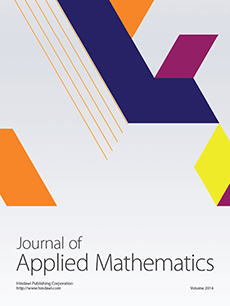Abstract
A new bandwidth allocation model is studied in this paper. In this model, a system, such as a communication network, is composed of a finite number of users, and they compete for limited bandwidth resources. Each user adopts the decision that maximizes his or her own benefit characterized by the utility function. The decision space of each user is subject to constraints. In addition, some users form a group, and their joint decision space is also subject to constraints. Under the assumption that each user’s utility function satisfies some continuity and concavity conditions, the existence, uniqueness, and fairness, in some appropriate sense, of the Nash equilibrium point in the allocation game are proved. An algorithm yielding a sequence converging to the equilibrium point is proposed. Finally, a numerical example with detailed analysis is provided to illustrate the effectiveness of our work.
Citation
Shun-Pin Hsu. Shun-Liang Hsu. Alan Shenghan Tsai. "A Game-Theoretic Analysis of Bandwidth Allocation under a User-Grouping Constraint." J. Appl. Math. 2013 (SI24) 1 - 9, 2013. https://doi.org/10.1155/2013/480962
Information





